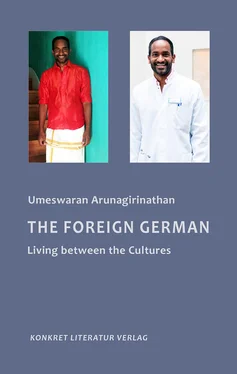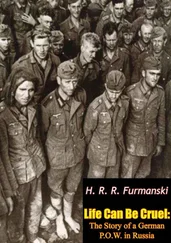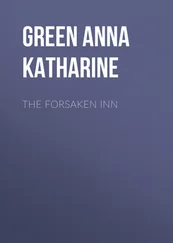Dedicated to my godson, Oskar
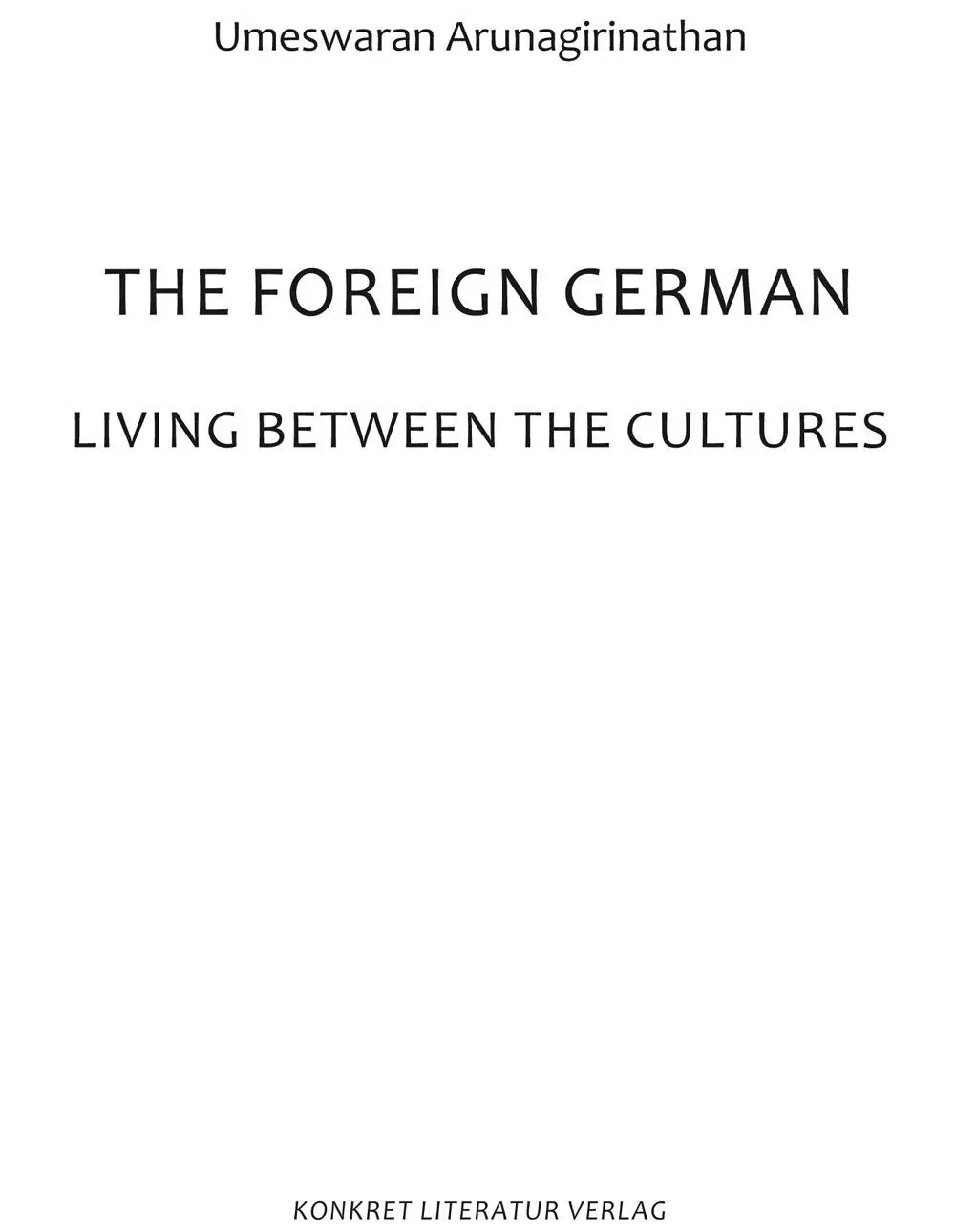
Imprint
Translation:
Dr. Robert Porter
All pictures are taken from the private archive of the author, except the portrait on page 105 (© Karin Desmarowitz) and the frontispiece
(© Ulrike Hage)
Bibliographic information of the Deutsche Bibliothek:
The Deutsche Bibliothek lists this publication in the Deutsche Nationalbibliografie; detailed bibliographic data can be called up on the internet at http://dnb.ddb.de
Hamburg 2019
ISBN 9783894583040
www.konkret-literatur-verlag.de
© KONKRET LITERATUR VERLAG
“No one is born hating another person because of the color of his skin, or his background, or his religion. People must learn to hate, and if they can learn to hate, they can be taught to love, for love comes more naturally to the human heart than its opposite.”
Nelson Mandela, Long Walk to Freedom
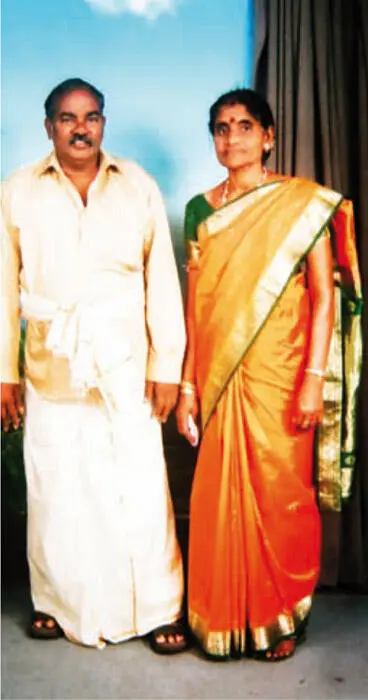
Umes’ parents, 2012
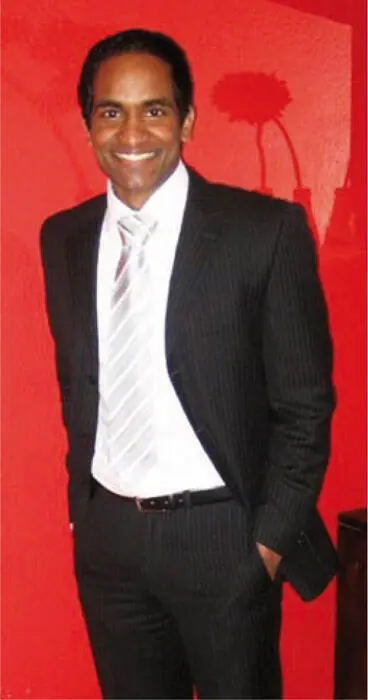
Umes before the job interview
A Difficult Family Meeting
The Foreign German
My Afghan Family
Spit in my Face
Reunion in New York
Missing Hamburg
The Baptism
My Father’s Ashes
A DIFFICULT FAMILY MEETING
ONLY 20 MINUTES until the landing of the Ryanair machine at the London Stansted airport. I still saw the clouds under me, the landing had not yet begun. I was on the way to Nala, my second youngest sister, in London. There I was to see our father again for the first time in 16 years. In 2005, the year before, I had already been able to hold my mother in my arms at Nala’s home. Now both parents had come together in London.
Although I was already 29 years old and an adult man I envisioned my parents before me as I had known them as a child in Sri Lanka. A picture had imprinted itself especially: together with my parents, my older sister Ruji, the younger sisters Vani and Nala and my little brother Jana -- I am visiting a temple festival. Once a year there is a temple festival in every temple, that lasts ten days. During the festival days, the adults fast. At our house, like in most families, there was neither fish nor flesh. But many many men went secretly to places where beef was served, and even palm wine.
For a visit to a temple we dress quite traditionally; the women wear a sari and the men a white vedi, a sort of wrapping skirt of silk or cotton, mostly no shirt but instead a chawl around the shoulders.
For my mother it was always important what the neighbours thought about us. Therefore I also had to wear a veddi and “wip futhie” on the forehead (ashes from burned cattle dung, as a sign of belonging to the Hindu faith). Wip futhie is distributed to the believers by the priests in the temple after the prayer. It is that the Hindu god Shiva rubs his body with the ashes of the dead. Therefore it is also very important that our body be cremated at death.
The last time I had seen my father was in the summer of 1990, before I left my hometown Puthur in the north of Sri Lanka. In Colombo, my mother hoped to find smugglers who would take me to Germany. My father was a jolly big man with a fat stomach, who loved children, and would have given anything that we might not starve during the civil war. And he was also a frugal fox. Swiss sugar was very popular during the war, we children would thus suck candy instead of taking sugar in our tea because it was cheaper.
My father, as head of the family, had to divide up the money we earned as a family so that we could survive. I learned quickly to live economically, to give up unnecessary things and to treasure every rupee. The war forced us to spend money only for the things most necessary for life. That formed me for the rest of my life.
The landing of the plane brought me back to the present. I felt the excitement of meeting my parents again after such a long time. It was my father’s greatest wish to see me once again. Although he had suffered for years from high blood pressure, diabetes, and an open wound on his leg, he had willingly undertaken the difficulties of the long flight.
My sister Nala, who has lived in London for years, arranged a visitors visa for my parents. My job was to pay for the flight. That was not easy for me as a student. I had the good fortune that after my studies I had a stipend from the Heinrich-Böll Foundation and would therefore have the money for the flight.
Impatiently I got up from my seat before the safety belt light went out. Hurriedly I went to the visa control, which was meanwhile familiar to me. Still, my heart raced with the fearful question, whether something could still go wrong at the control or whether I would answer the officer’s questions correctly. In the end there was no reason to worry; after the standard questions that I answered without hesitation, I was permitted to enter the country.
Then I went directly to the baggage claim, to get my suitcase. It cost 15 Euro to check my bag with my cheap flight by Ryanair. Usually a hand baggage was sufficient that did not cost extra money. But this time I had presents with me for the family; a shirt and a heavy xxl sweater for my father and a purse as well as a similarly heavy wool sweater for mother so she wouldn’t have to freeze in the unusually cold London air. But also presents for my sister’s children. I had bought t-shirts at C&A in Hamburg with lots of wonderful figures from children’s films. At C&A in London I had received my first winter jacket before the flight to Germany.
With the hand baggage in one hand and the suitcase in the other I went to exit. Waiting there for me were my father and my sister Nala while my mother babysat Nala’s children at home.
During the flight I had thought about what how I should greet my father, what he might expect from me. Now I stood in front of him and had no idea what I should do. There was no embrace. He only looked, silently, at me from head to toe and said in Tamil, “Vaa, vanko,” or “Come come, sir.”
He appeared suddenly to be fragile, and not the strong father I remembered. He had aged also. I was looking at the face of a sick man, as I knew it from a lot of patients at the clinic. My father had become a stranger for me. I had almost not recognized him. I was confused and sad. He wore an old jacket of my brother-in-law’s and a gold necklace that my sister had given him. On his right ring finger, a golden ring with nine different stones. According to Hindu belief, they were supposed to bring him happiness in life.
We went to the parking lot, where my brother-in-law [bil] awaited us in the car. Father was allowed to sit in the front. Nala had to help him. He couldn’t manage it by himself any longer. I stood there helpless and only watched. I wasn’t sure whether it would be acceptable to him if I helped. In my childhood he was the one who did everything alone and never had needed our help.
After I had stowed the baggage in the trunk, I sat down by my sister on the backseat. While we drove toward London, a strangely stifled atmosphere prevailed. My sister tried to break through the muffled silence. She asked questions, hoping to get father and me into a conversation.
It was usual for me to address my father as “Sir” in Germany. it is customary that children speak to their elders and older siblings in the formal Sie-form. That a father, as the head of a family, would address his son in the Sie-form, I had not yet experienced. My siblings said this was a sign of respect for me, for all that I had thus far achieved in my life. A greater honor could not have been granted me. Perhaps this respect was the reason that my father had not hugged me at our reunion nor had he shown any emotion. His behavior complied with Tamil tradition, but still made me very sad.
Читать дальше
